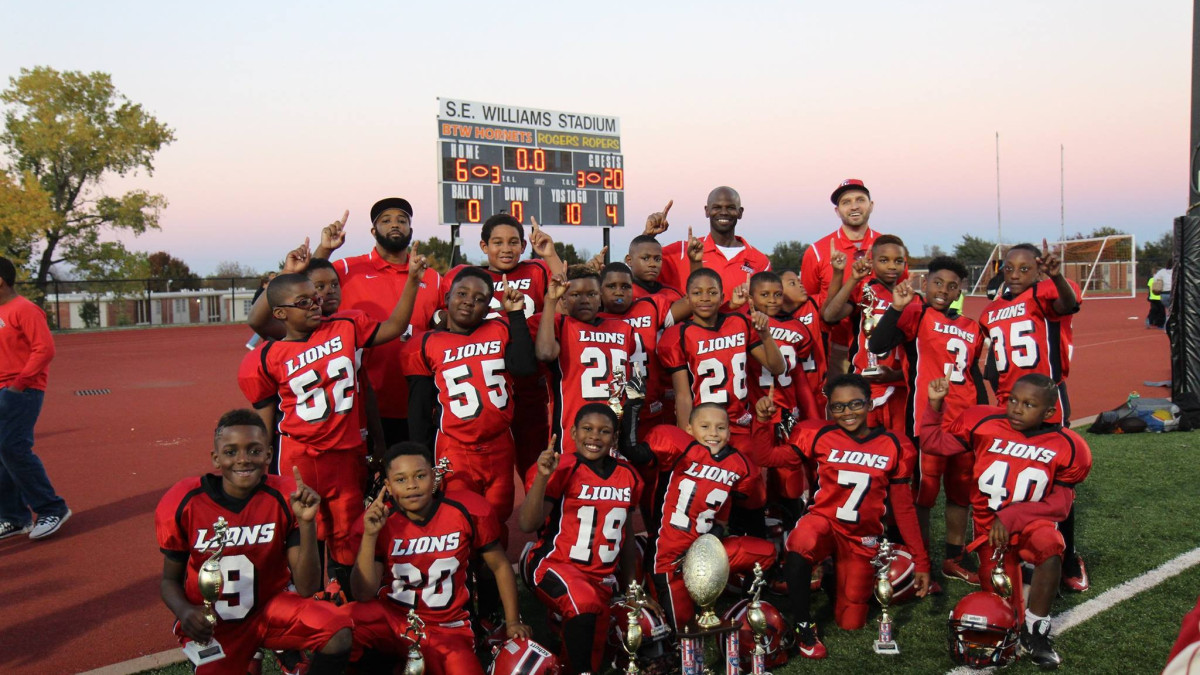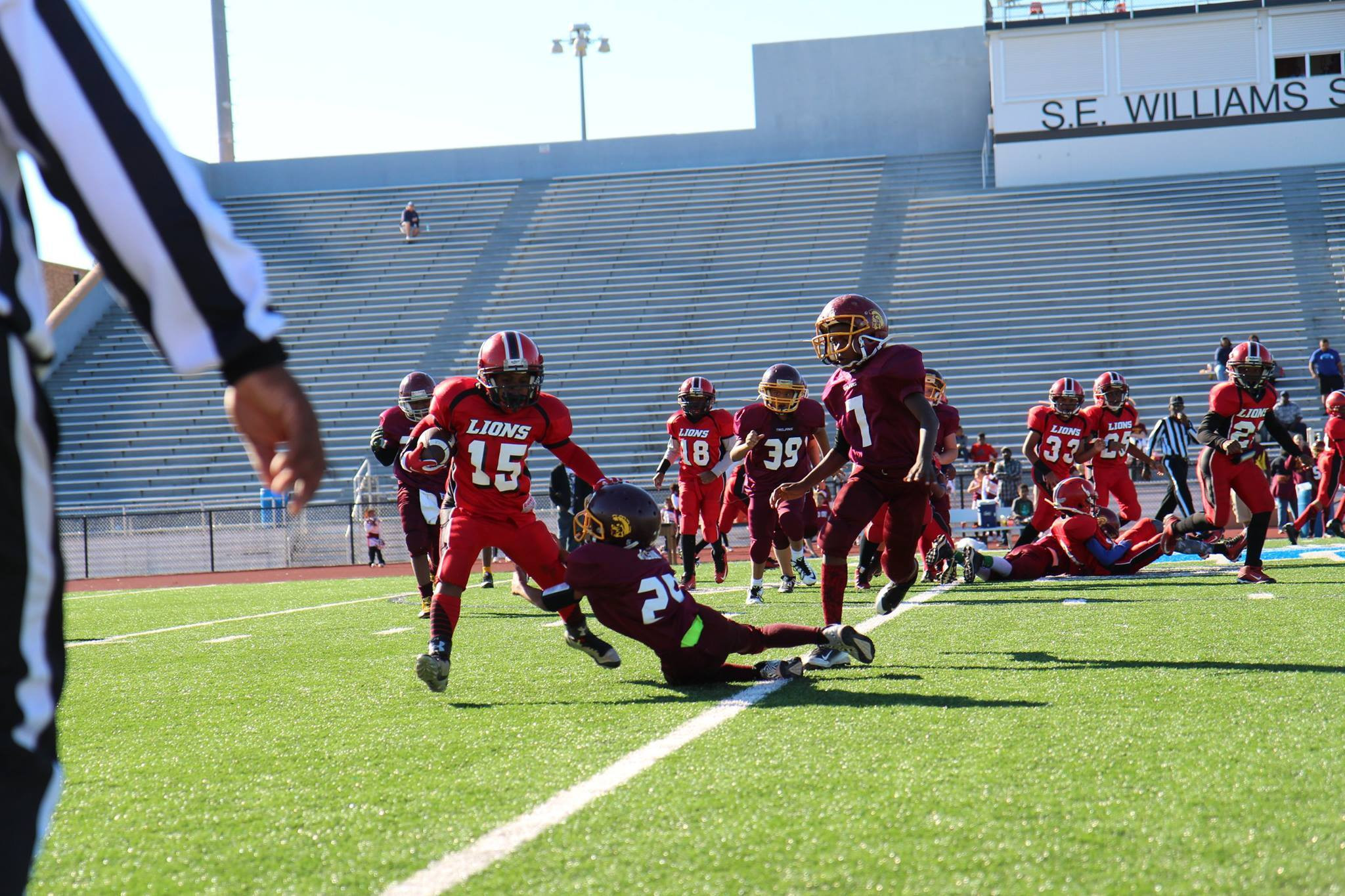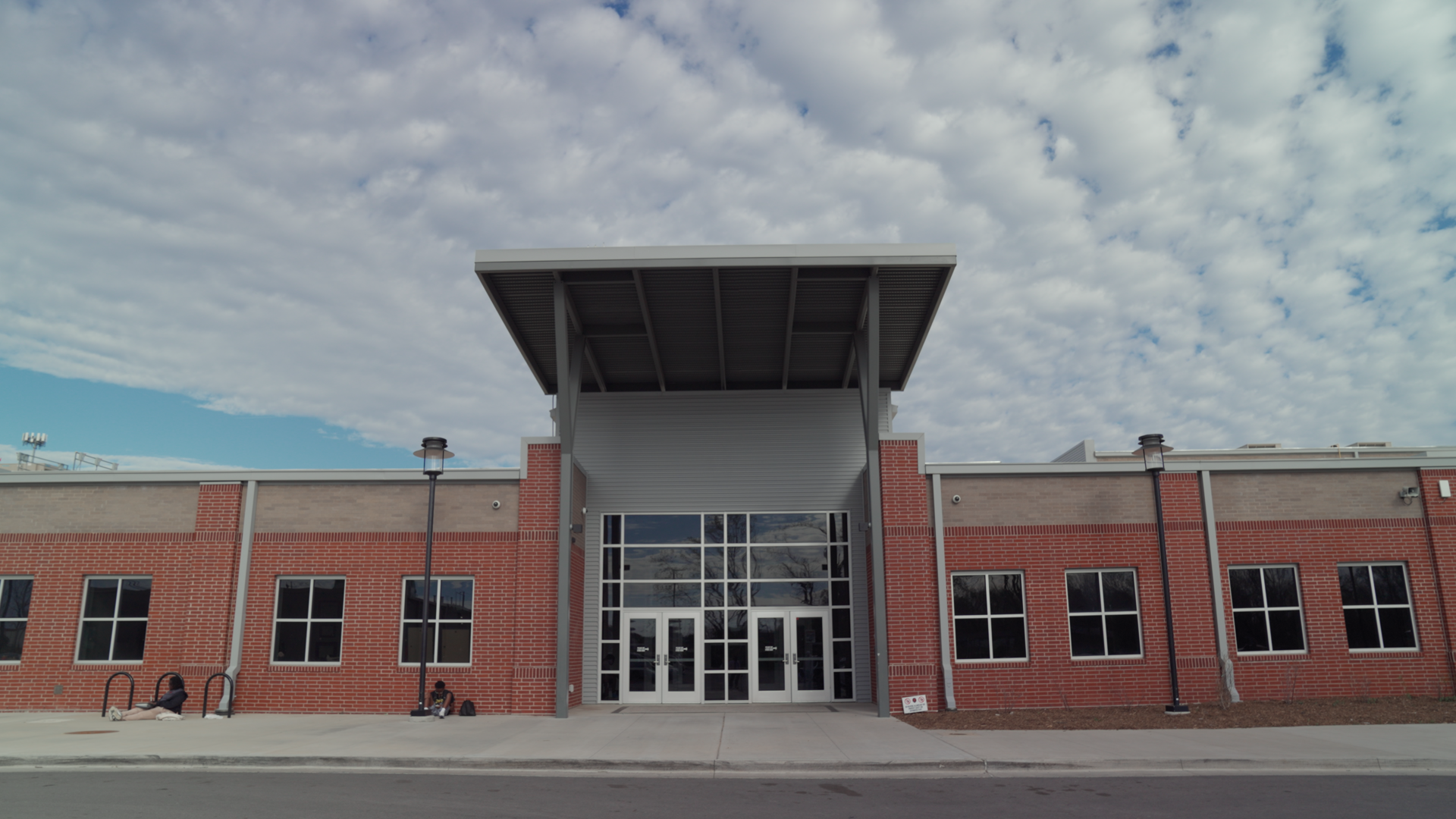Transformation Flows Through Relationships
And relationships happen when we know our community and move toward them in love.

When my wife Ronni and I first arrived in north Tulsa, Oklahoma, to plant Crossover Bible Church (EFCA) in the mid-2000s, I started playing basketball two mornings a week.
Every Tuesday and Thursday, I drove downtown to the corner of 12th and Boulder, walked past the towering spires of First Methodist Church and into their youth and family center for a couple hours of pick-up basketball. And every week, dozens of other men from the community joined me.
Man, I thought. What if our church had something like this?
The last thing we wanted was somebody in the community to think they needed to buy into what we believed before they were welcome in our church—or that they needed to go to a church building to experience God.
The only problem, ironically, was the church. When people hit the hardwood, they knew where they were—and not in a good way. On the rare occasion somebody cussed—after a hard foul or a missed layup—the outcry came quick: “Man, you can’t do that! This is a church!” That didn’t sit right with me.
Around that same time, I saw a sign outside another local church that read, “Careful, God working inside.”
As we moved toward planting Crossover, the last thing we wanted was for somebody in the community to think they needed to buy into what we believed before they were welcome in our church—or that they needed to go to a church building to experience God. The church isn’t a building; it’s the people (1 Cor 12:12-2). The gospel flows through relationships—not stone spires or sheetrock—and authentic relationships can’t happen if people can’t show up as their authentic selves.
On February 20, 2006—two months before we officially launched Crossover—I put my hopes and dreams into my prayer journal:
“The main thing on my mind right now is my dream to build a brand-new community center here in north Tulsa. I would love to see a state-of-the-art facility that becomes the hub of the community. It would provide a natural setting for us to get to mix it up with non-believers in real life situations…This facility would help improve life for people in north Tulsa: both spiritually and physically. I say that because ultimately, I want to see people come to know the Lord through this facility. The facility is really just a vehicle for Crossover to minister to real needs and build authentic relationships with non-believers.”
What’s our Starbucks?
Before I left Dallas Theological Seminary in 2005, one of the common church-planting paths I noticed for my fellow seminarians ran through organic missional conversations. Over and over, I heard a different version of the same story:
“I was doing my sermon prep at Starbucks, and I struck up a gospel conversation with a stranger.”
The problem for us (a majority Black community) was: Black folks didn’t really drink coffee like that—at least, not back in 2005.
What’s our Starbucks? I thought.
In communities like north Tulsa, one of the loudest critiques of the Church is that we don’t actually do anything. And when we first arrived in 2006, we had no evidence to combat that argument.
Looking around, we saw plenty of churches—every couple blocks we’d find another one—but the number of church buildings seemed to have little effect on the cycles of poverty and violence in the community. Or the plummeting home values. Or the fact that three-quarters of kids (70 percent) were born to unwed mothers, less than half (46 percent) were graduating high school, and, on average, all of them were dying more than a decade (14 years) earlier than their neighbors to the south.
If you can look around and see churches on every corner, but the community’s still a mess, then what good is the church?
The history of the Black Church, for so long, was one of community betterment. Think of the Civil Rights Movement in the 1950s and 60s. The Church championed a cause characterized by meeting real needs with the gospel. But over time, that legacy faded. As the American free market—and human brokenness—subtly shifted incentives away from community betterment and toward growing the Sunday service, the question started to arise: Do churches still benefit communities?
If you can look around and see churches on every corner, but the community’s still a mess, then what good is the church?
At Crossover, we wanted to combat that narrative. One of the core questions that drove us—and one that still drives us today—was something I’d heard floating around at seminary: “If your church was to close its doors, never to open them again, would anyone in your community notice?”
At first, we tried to do this by breaking the mold of a traditional Black church (a.k.a., our services weren’t long). We wanted to provide something different, and initially, people seemed to respond. After one of our core members invited his cousin to join us for an early preview service, the cousin said, “This is going to be my church home.”
But then we never saw him again.
As it turned out, what he meant was, “This will be my church home…when I’m actually interested in going to church.”
North Tulsa didn’t need a Starbucks. Most of the community wasn’t looking for a “church home” or another steeple to occupy another street corner. They had real, tangible needs—education, housing, poverty—right on the surface. If we wanted to address the brokenness in our community—if we wanted to be a church that north Tulsa noticed—we needed to meet people in their context. We needed to move toward people through relationship.
Discipleship on the gridiron
Once we realized a great Sunday service wasn’t going to radically change our community, we switched up our strategy. We started hosting community events—barbecues, back-to-school bashes, neighborhood clean-ups—anything we could do to show the community we cared. That gave us momentum for a while, but eventually, the inertia of starting a new church drove us back to Sunday mornings. The call-to-action remained the same (“Join us for church this week”), and our momentum toward community impact stalled.
Then, by the grace of God, came a football team.

At the time, our church met at a local community center—on Martin Luther King Jr. Boulevard—and in summer of 2008, that community center needed third-grade football coaches. Given my football background at the University of Tulsa, one of Crossover’s other pastors and I volunteered to help. Although I’d love to take credit for this “intentional ministry move,” the reality was, God dumped a game-changing ministry opportunity on our laps without us even looking for it.
I knew things were bad in north Tulsa, but before the football team, I didn’t know just how bad. Of the 8- and 9-year-olds we coached, almost all of them were already failing at school. Several of their dads had already left the picture, if not worse. They were good kids, but the other coaches and I knew if they didn’t change their attitudes, they were destined for the cycles of darkness that had already claimed so many in the community. We also knew that, even if these kids never walked through the doors of our church, we needed to find a way to help.
We started by discipling the boys where we could. We talked about character at practice; we tutored them after school. Little by little, not only did their attitudes improve, but their families also started letting us into their lives. In just one season as Coach Philip, I had more “organic missional conversations” with people in north Tulsa than in several years as Pastor Philip.
After a few years of exploring this unforeseen discipleship pathway, Bob Rowley—at the time, the superintendent of the EFCA Texas-Oklahoma District—sent out a monthly newsletter called, “The Parish Paper,” which included practical ideas and insights for local churches. That edition addressed a specific question: “Should your church start a non-profit?
Later that year (2012), we “officially” moved our efforts beyond Sunday mornings by starting a separate non-profit, Crossover Community Impact (CCI), to be the outreach arm of the church. In July 2012, CCI launched Crossover Sports Association (CSA) and our own youth football team—this time, first and second graders. Later that year came a basketball team, and in Spring 2013, the boys grabbed their gloves and hit the baseball diamond.
After CSA, we started Crossover Kids, an after-school program and summer day camp, and hired high schoolers to work as tutors (StreetLeaders). In 2014, we opened a primary care clinic, Crossover Health Services, and in 2015, we started Crossover Development Company to build and remodel homes in the neighborhood. In 2017, we enrolled our first class of seventh graders at Crossover Preparatory Academy, an all-boys, tuition-free private school, and in 2021, we added an all-girls school.
In the end, CCI’s programs did increase our Sunday morning attendance, but that was never our goal. We’re not trying to build the biggest church or amass the largest following. God has called us to see transformation here in north Tulsa. We want to restore our community, to recognize real needs and leverage those needs for the sake of the gospel. Because ultimately, gospel transformation flows through relationships.
What’s the win?
In December 2021, I stood in front of the entire CCI team at our annual Christmas party and read from my February 2006 journal entry, emphasizing the last line:
“My prayer is that the Lord would give me clarity of vision and the discipline, diligence and faith needed to see it come to pass.”
On April 15, 2022, we broke ground on Crossover Community Center, and on December 16, we opened the doors. Today, beyond hosting our church staff and Sunday morning services, the community center is home to Crossover Prep, a sports and fitness center, our Crossover Kids programs, among many other things (community events, dance classes, facility rentals, etc.).

More than 15 years after I wrote those words in my prayer journal, the dream became a reality. It was a cool moment to share with our staff—to look back and see God’s faithfulness in such a tangible way, from the vision to restore our community, to coaching a third-grade football team, to opportunity after opportunity to move toward our community in relationship.
At the end of the day, that’s the heart behind the community center—and the health clinic, the sports program, the schools, all of it. We want to put ourselves in proximity to people’s everyday lives. To build relationships. To hear people’s stories and open doors for gospel conversations. And Lord-willing, we want to see God transform the lives of individuals, families, neighborhoods and entire communities.
Transformation flows through relationships, and relationships come from knowing and moving toward your community. Yes, we celebrate when a new face walks through our doors on Sunday morning, but ideally, they’re not a “new face.” Our goal is that they’d already know us—because their teenage son’s enrolled at Crossover Prep, or their three-year-old daughter joined a ballet class, or they just signed up for a new gym membership. Sunday morning attendance is an outcome of relationship, not the other way around.
The win isn’t: How much is my church growing? The win is: How many people are walking with Jesus that weren’t walking with Him before?
Do you really know your community?
God has called us, Crossover Bible Church, here, to north Tulsa. But north Tulsa isn’t south Tulsa. It's also not a rural community in central Nebraska or a college town in coastal California. Our story isn’t your story, and our ministry will (and should) look different from yours.
True community transformation can’t happen apart from the gospel, and the gospel flows through relationships.
Where is there brokenness in your community? The problems might not be on the surface—or as stark as they are in north Tulsa—but that doesn’t mean they’re not there. They might be behind the scenes of a “good job” and a “healthy family,” or beneath the façade of the “American Dream.” Maybe it’s someone clinging to comfort, trapped in isolation or drowning in distraction.
On a practical level, the gospel is the key to the self-inflicted aspects of brokenness in a community. At its core, almost every issue—obvious or hidden, acceptable or reprehensible—is a gospel issue, from individuals and relationships to communities and systems. When we operate by the “If I’m good, then we’re good” mindset within a community, it can lead to many of the disparities and injustices we see in society today.
But Christ calls us to something different. He calls us to transformation—and not just for ourselves, but for the people around us. Look at Titus 2:11-14:
“For the grace of God has appeared, bringing salvation for all people, training us to renounce ungodliness and worldly passions, and to live self-controlled, upright, and godly lives in the present age, waiting for our blessed hope, the appearing of the glory of our great God and Savior Jesus Christ, who gave himself for us to redeem us from all lawlessness and to purify for himself a people for his own possession who are zealous for good works.”
An individual life that’s transformed by Jesus leads to “renounc[ing] ungodliness and worldly passions,” but it also leads to something deeper. The church is called to make disciples who make disciples. The fruit of a real relationship with Jesus is passion for doing good. True community transformation can’t happen apart from the gospel, and the gospel flows through relationships.
What’s the story of your community? How does the gospel intersect that story to provide uniquely good news to the people around you? How might you intentionally put yourself in proximity to them, to meet them in their real lives and their real needs? How could you take the gospel to them in a relational and transformational way?
If your church were to close its doors today, never to open them again, would anyone in your community notice?
Lead photo: Philip (back row, second from right) and the Crossover Lions football team celebrate their championship win.
This article was included in the 2025 edition of The Movement, the EFCA's annual publication highlighting stories of God at work within the Evangelical Free Church America. To view and order copies of The Movement for your congregation, click here.
Send a Response
Share your thoughts with the author.